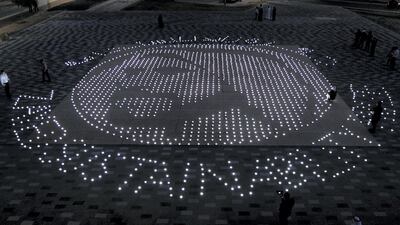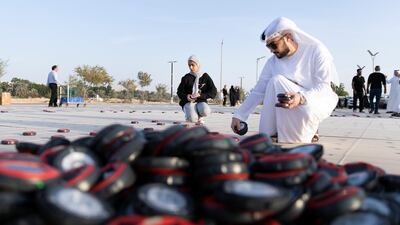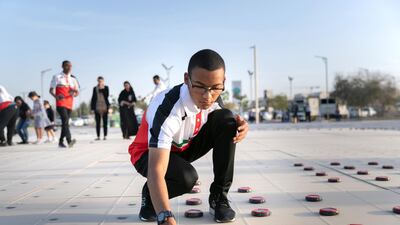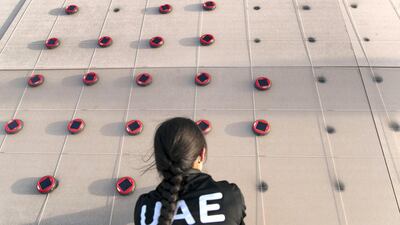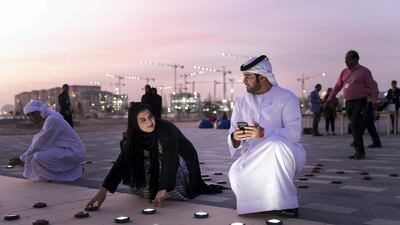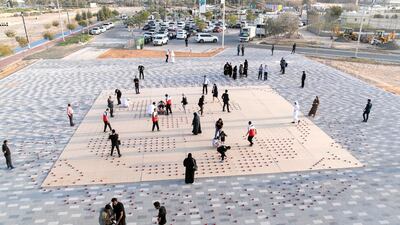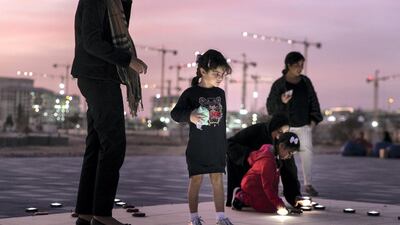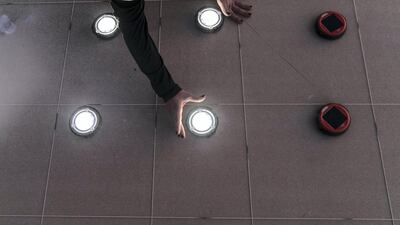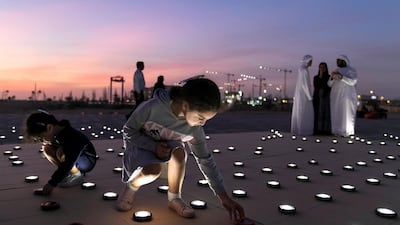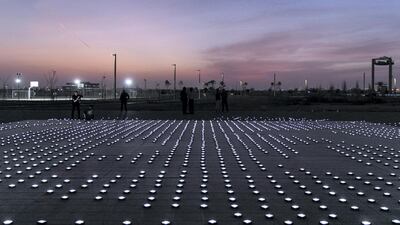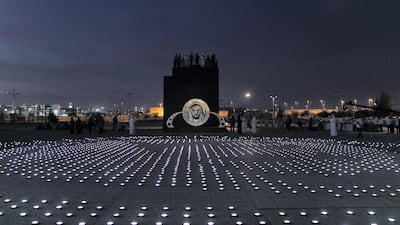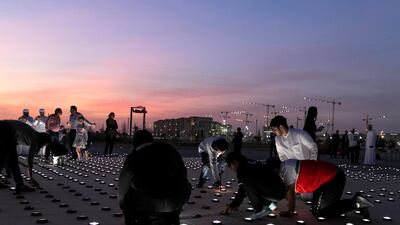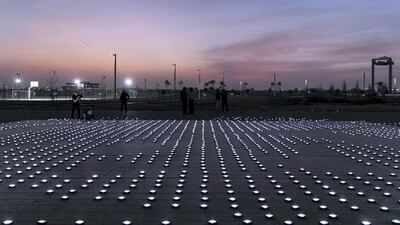Shortly after the sun had set in Abu Dhabi on Wednesday, 2,000 solar lanterns were lit to reveal the Zayed Sustainability Prize logo.
The 20 metre by 20m light installation marked the conclusion of a one-month campaign that saw the distribution of 2,000 solar lanterns across rural off-grid communities in four countries.
The campaign started on December 6 in Bahrain with a similar lighting ceremony before moving to Indonesia, Bolivia, Bangladesh and Kenya.
It was the brainchild of Dipal Barua, winner of the first edition of the prize in 2009, when it was called the Zayed Future Energy Prize.
In Indonesia, the lanterns were distributed to 1,179 homes who were affected by a recent earthquake and Tsunami.
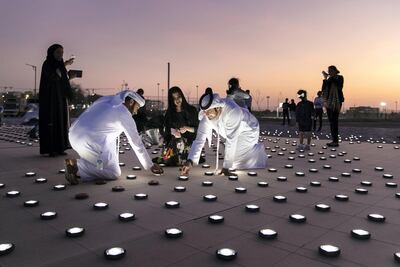
In Bolivia, the lanterns were distributed to families living in San Juan.
In Bangladesh, the lanterns gave light to Hazarbighar Char Island that is entirely off-grid. It is home to 5,000 people.
_____________________
Read More:
Two thousand UAE solar lanterns to bring light to off-grid island in Bangladesh
Zayed Future Energy prize is now Zayed Sustainability Prize
_____________________
Levi Nyakundi, director of marketing at d.light Africa, who managed the distribution in Kajiado, Kenya, said the campaign was "very successful".
"We were able to impact more that 2,000 people in that community, not to mention their families. With the campaign and donations we have been able to ensure that school children continue could study and that the community continues to enjoy good health services 24 hours a day.
"We were honoured to involve teachers, students, head teachers and clinicians," he said.
